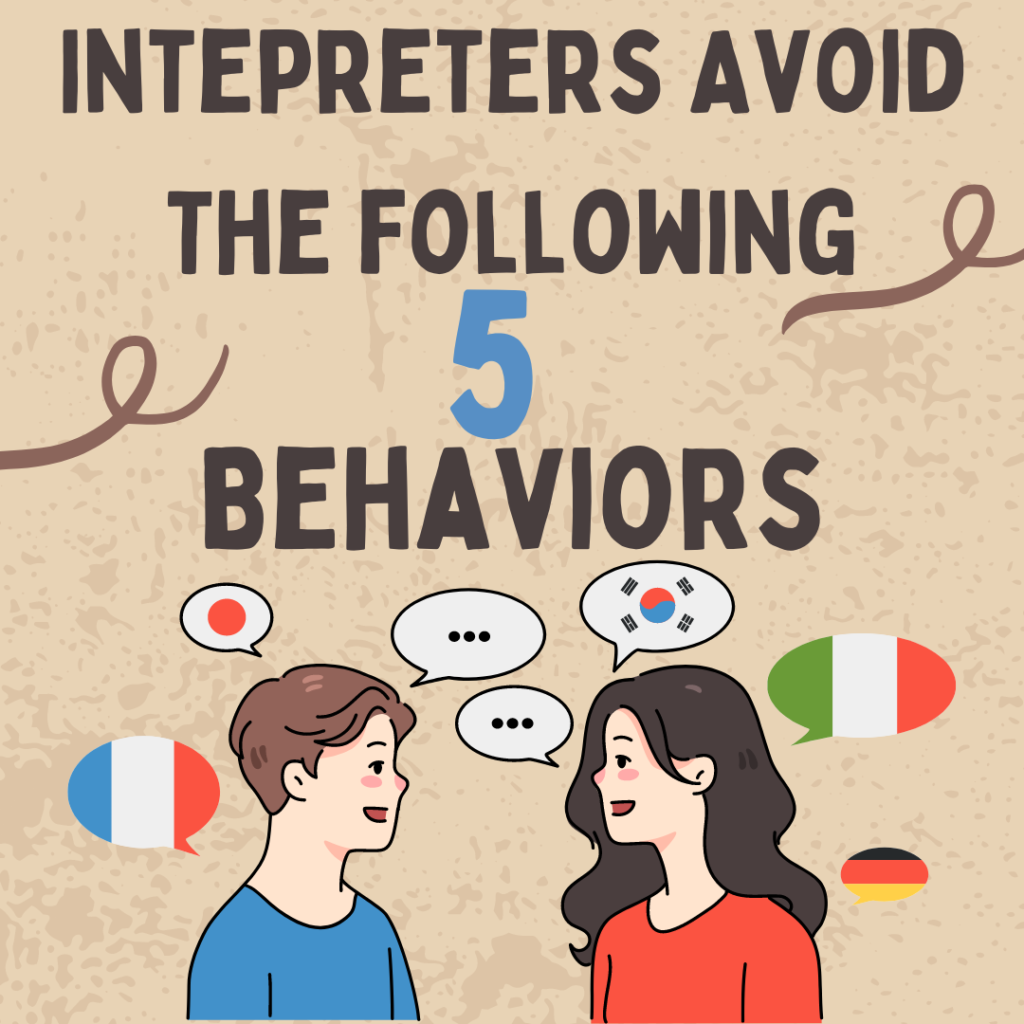
As an interpreter, maintaining professionalism and integrity is crucial for effective communication. Here are five behaviors that interpreters should avoid at work:
Adding Personal Opinions
- Interpreters should refrain from injecting their personal opinions, biases, or emotions into the interpretation process. Their role is strictly to convey messages accurately between parties without any distortion or influence.
Omitting Information
- Interpreters must avoid selectively omitting information from the interpretation, regardless of its sensitivity or potential impact. Every detail communicated by the speaker should be faithfully conveyed to the recipient.
OverStepping Boundaries
- Interpreters should understand and respect professional boundaries. They should refrain from engaging in conversations beyond the scope of their role, offering personal advice, or involving themselves in the content being interpreted.
Being Judgemental
- Interpreters must remain impartial and non-judgmental towards both parties involved in the communication. Regardless of their personal beliefs or attitudes, interpreters should maintain a neutral stance to ensure unbiased interpretation.
Lack of Confidentiality
- Interpreters are entrusted with confidential information exchanged during communication sessions. It is imperative for interpreters to maintain strict confidentiality and not disclose any information shared during interpreting sessions to third parties without proper authorization.
By avoiding these behaviors, interpreters can uphold professional standards and ensure effective communication between parties.
